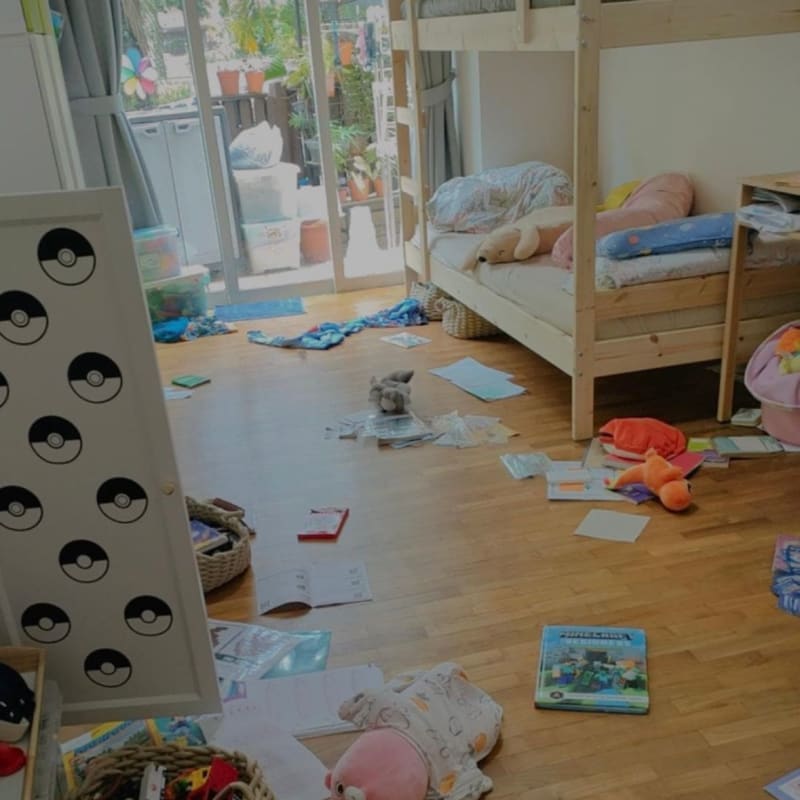I worry that I’m raising my kids to be complainers. Here’s what I’m doing about it
Complaining can be cathartic, but mum-of-five Kelly Ang is determined to teach her children how to avoid getting trapped in a vicious circle of negativity.

Complaining can offer emotional release and help validate our feelings, but only in small doses, some experts said. (Illustration: CNA/Samuel Woo, iStock)

This audio is generated by an AI tool.
Singaporeans are well-known for complaining. It’s even said to be one of our national pastimes, alongside eating, shopping and queuing.
On Facebook alone, Complaint Singapore has more than 244,000 group members, with dozens of fresh posts daily documenting some new (or old) gripe about living in Singapore.
Singaporeans made more than 1.7 million municipal and estate complaints in 2023 alone, many of them relating to daily living irks such as overflowing trash bins.
The hustings in our recently concluded General Election also made me think about how deeply ingrained complaint culture is in Singapore.
I’m no political expert, so take this with a gigantic sprinkling of salt, but while watching many candidates’ rally speeches, I couldn’t help but notice a fair amount of grumbling.
COMPLAINING DOESN’T JUST START AT HOME, BUT WITH ME
“It’s sooooo hot today, I’m melting!”
“Why is there always so much homework?”
“I have to stop playing my game already? But I barely started!”
“We’re eating what for dinner? Not again!”
These are just some of the typical complaints I receive from my five children each day.
Forget “national pastime”. In our home, my kids have made complaining an endurance sport, one in which they’re gold medallists.

As their mum, it often feels like they expect me to have the power to make all their grievances magically disappear with a nod and a wave. I can’t help but feel frustrated, irritated and disheartened at just how often and easily complaints spill from their mouths.
But I also wonder if I’ve inadvertently taught them to embrace complaining as “normal” with my own behaviour.
I’ll be honest, the last time I complained was just 30 minutes before writing this piece.
“I’m so tired,” I said to my husband, to a friend on WhatsApp and even to my kids when they asked if they could have one last bedtime story.
Complaining about my exhaustion feels warranted, like I’ve earned it after spending the whole day juggling work, caring for my toddler and driving my older kids to school and their various activities all over Singapore.
Yet, verbalising all my unhappiness in the moment usually does nothing to improve my mood. It only makes me feel like I’m “allowed” to lose my temper with my family or be unkind because I feel tired, which is not healthy behaviour at all.
WHEN IS COMPLAINING HELPFUL AND WHEN IS IT NOT?
Modern parenting advice often tells us to encourage children to express their thoughts and feelings honestly. In this vein, complaining in itself isn’t a terrible thing.
It may even be healthy because it offers emotional release and helps validate our feelings – but only in small doses, some experts said.
Sometimes, my kids have legitimate cause for complaint. A long, hot and busy day in school is no picnic, after all.
Nevertheless, hearing their endless gripes worries me. Are they growing up to be ungrateful, perpetually unhappy individuals, simply by focusing on all the negatives?
I want my kids to voice it out when they’re seeing or struggling with a problem, but I also want them to be able and willing to stand up and be part of the solution in whatever way they can.
But do I even do that myself?
I want my kids to voice it out when they’re seeing or struggling with a problem, but I also want them to be able and willing to stand up and be part of the solution in whatever way they can.
Admittedly, I’m sometimes guilty of ranting and venting without any real intention or consideration towards a solution.
Other times, I do want to make a change, so I complain “carefully”. I think about what I say, how I say it and to whom I say it. I ask myself what would make things better and make sure to verbalise it, too.
Take my “I’m so tired” complaint, a frequent refrain of mine. Do I take concrete steps to address the issue by sleeping earlier, getting more exercise, eating better?
Not often enough, if I’m being honest. Sometimes I even exacerbate my day-time exhaustion by staying up late at night catching up on social media or Netflix shows.
I can definitely do better, but meanwhile, how do I teach my children not to be incapacitated by their unhappiness?
Can I inspire them to instead let their dissatisfactions spur them on to make things better?
FROM COMPLAINERS TO PROBLEM-SOLVERS
Lately, this is the strategy I’ve been trying to work with, both for my kids’ benefit and mine.
I listen to their complaints with as much patience as I can muster. I ask questions for them to figure out exactly what they’re unhappy about – is it really the amount of homework, for instance, or is it a particular topic they’re struggling with in mathematics?
Then, I prompt them to take ownership or action: “What do you think will improve the situation? How can you be part of a change for the better?”
They’re usually very eager in the first half of this process, airing out all their gripes with great detail and gusto.
Once we get to the second half, they have to pause and think hard about what they’re able and willing to do.
My sons, aged 12 and 10, abhor cleaning up their room. Each evening, the scene is positively criminal. Books and study materials are strewn everywhere, often spilling out to the living room. Pillows dot the floor from hours spent doing homework and reading. Boxes of half-sorted Pokemon cards occupy every inch of walking space. School bags and pencil cases are emptied out (personally, I’ve given up understanding this habit of theirs).
It’s a nightly whine-fest whenever it’s time to pack up and prepare for bed.
“Ugh, I hate cleaning up.”
“This will take forever!”
“Can we just do this tomorrow?”

Recently, I sat my boys down to ask them how we could improve this situation. After some thought, here’s what they suggested:
- Putting books back onto shelves immediately after reading, Pokemon cards back into boxes after playing, and homework back into bags once done
- Decluttering their room – less stuff makes for less mess
- Banning their little sisters from entering their room and adding to the mess
- Acknowledging the necessity of the clean-up process and setting aside 30 minutes every evening before bed to get it all done, grumbles and all
We’ve been aiming for No 1 but habits don’t form overnight. I’m still giving them incessant reminders.
No 2 will likely have to wait for the upcoming June holidays. They’ve also realised that keeping their sisters out doesn’t do much to reduce the mess (or, as Taylor Swift sang, “It’s me, I’m the problem”).
In the meantime, what seems to be sticking is No 4: Complaining, but packing anyway.
Is it the best solution? Maybe not.
But right now, it gets them to think about what they can do to improve situations they’re unhappy about and focusing on acting instead of just talking.
While listening to some of the recent General Election candidates speak about perceived problems in society, my older children expressed an interest in community work and volunteering to help the underprivileged and less fortunate.
Maybe I’m overly optimistic, but I’m taking this as a good sign – that one day, they’ll grow to be responsible adults who use their discontent to fuel positive change for themselves and those around them.
Kelly Ang is a mother of five and a freelance writer.














